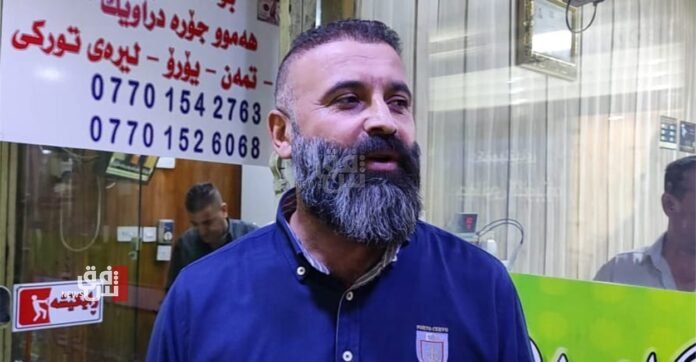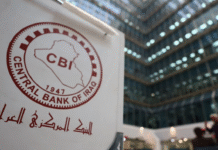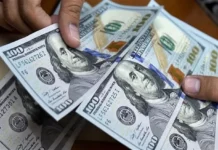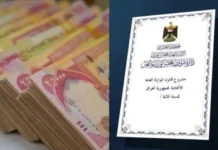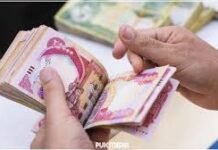An economic expert explained on Saturday the reasons behind the rise of the dollar exchange rates in Iraqi markets, particularly in the Sulaymaniyah markets in the Kurdistan Region. The expert clarified that selling the dollar against the local currency is not a responsibility of the Central Bank, and the matter should be left to the “black market” for market stability.
During an interview, economist Dana Mawloud explained that there were two main causes for the sudden increase in the dollar exchange rate. The first reason was the announcement made by the Central Bank of Iraq stating that they will stop pumping and selling the dollar to the markets from the start of next year. The second reason was due to the media exaggeration carried out by some media outlets, which had an impact on citizens’ decisions to collect dollars instead of the local currency.
The Central Bank of Iraq has announced that it will stop pumping currency into the market from January 1 with the aim of preventing the US dollar from reaching Iran and Turkey. The decision was taken in coordination with the World Bank and with the approval of the US Treasury. According to Mawloud, this step was taken to prevent Iran and Turkey from buying the most US dollars from Iraqi markets.
Mawloud explained that the Central Bank is the only entity authorized to sell foreign currency in the markets. It acts as a money exchange, and there is no other bank in the world that sells foreign currencies. He further indicated that the issue of foreign exchange rate is supposed to be left to the black market, while the Central Bank and other banks operate exchanges and transfers of currencies. When the foreign exchange rate is set by the government, the dollar exchange rate stabilizes between the government-specified rate and does not exceed 137,000 dinars for every 100 dollars.
Mawloud explained that the Central Bank of Iraq pumps dollars to banks and companies, rather than citizens who need them. This leads to currency smuggling.
On Saturday, the US dollar was exchanged for 158,500 Iraqi dinars on the Sulaymaniyah Stock Exchange.
